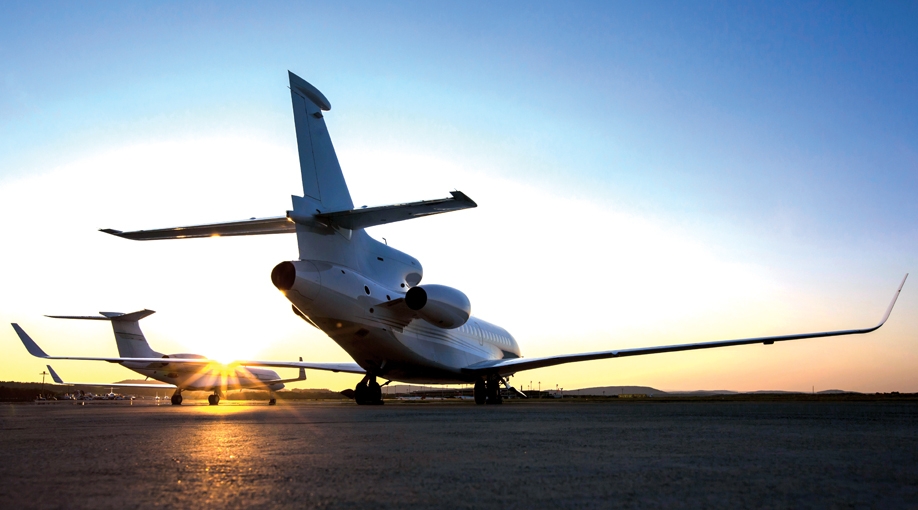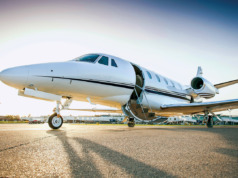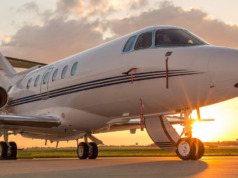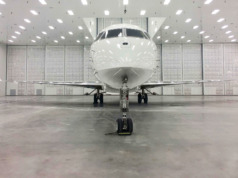
Are you considering your first aircraft purchase? Is now the right time for you to upgrade to a newer or larger model? Are you convinced that pre-owned prices are not likely to fall any further?
If a pre-owned aircraft is the right choice for you, the available inventory that meets your budget and your mission likely will include a significant number of aircraft registered outside of the United States. Previously, many potential buyers would pare down their “short list” of purchase candidates by simply eliminating aircraft registered in other countries. However, in today’s market, eliminating non-U.S. aircraft may result in an unduly short “short list,” and you just might eliminate some of the best available aircraft in the process. If you are willing to consider buying an aircraft registered outside the US, there are several factors to consider.
The first one is timing. Cross-border deals by their very nature are more complex and will take longer to progress from start to finish, so early planning is essential, as is a certain amount of flexibility. No two cross-border transactions are exactly the same.
As with any acquisition, assembling
the right “deal team” is essential.
The second is the proper expert advice. As with any acquisition, assembling the right “deal team” is essential. As you do so, consider the following:
- First, make sure your U.S. team is experienced in cross-border deals. Your aviation attorney, broker, other advisors and bank all should have done import deals before.
- You also will need local counsel in the country of registration. Unlike the U.S. “owner-based” registry, most foreign registries are “operator registries.” The aircraft is registered in the name of the actual aircraft operator, which often is a third party management company. Local counsel will advise you on the status of title, the procedures for releasing any liens, and the proper way to effect deregistration, and will help you set a realistic timeline for these events to take place. Note that while it is not uncommon for foreign aircraft registries to work less than a five-day, 40-hour week, they may be more flexible in working unusual hours to accommodate time zone differences and closings. Be sure to ask local counsel about interests outside of the registry which could create liens on the aircraft.
- Is the aircraft registered in a country which recognizes the International Registry (IR)? If so, you will need to release any existing liens and register your contract of sale on the IR. If not, you may have to persuade your seller to register as a “Transactional User Entity” to complete the transfer of the aircraft to you on the IR. Many sellers from non-IR countries object to this at first, but will eventually agree to accommodate a buyer’s legitimate IR requirements.
- Enlist the services of a Designated Airworthiness Representative (DAR). The DAR will inspect the aircraft to determine whether it is eligible for a United States Airworthiness Certificate. The DAR’s inspection does not replace the normal pre-buy inspection, but normally takes place during that process so it usually does not delay the closing.
- Plan on doing some extra due diligence on your seller and on your seller’s lender. Run their names against the various “bad guy lists” established under the USA Patriot Act. If you do not have the capacity to do this, your attorney or bank may be able to help.
- Hire a United States customs broker. In addition to “importing the aircraft for registration purposes,” the aircraft will need to be imported for U.S. customs purposes. Many aircraft purchases do not require the payment of customs and import duties, and the cost of the registration importation is relatively small. An experienced customs broker will handle the paperwork and steer you to the best point of entry.
Purchasing an aircraft from a registry outside the United States is more complicated than buying a U.S. registered aircraft. But, with advance planning and with the right team on your side, the extra effort may pay dividends. BAA
Edward Kammerer is a Shareholder at the law firm of Greenberg Traurig. With more than 35 years of experience, he advises the business aviation community on all aspects of aircraft ownership, operation, and finance.




